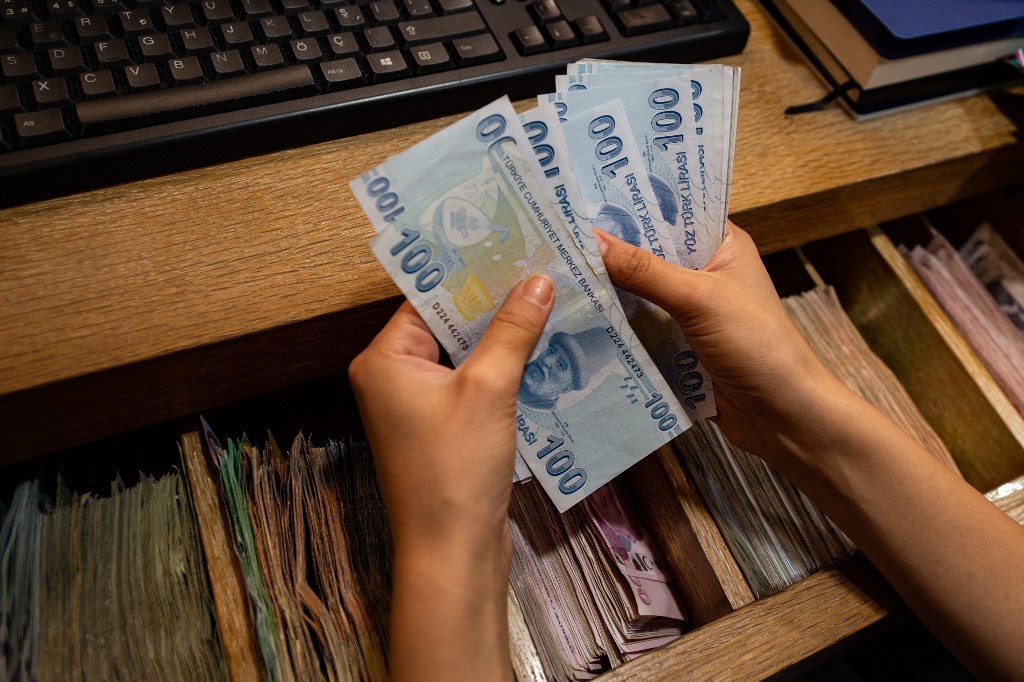Nearly three out of every four people in Turkey think corruption has become more widespread over the past two years, Deutsche Welle Turkish service reported on Thursday, citing a survey by global watchdog Transparency International.
The results of the survey, titled “Corruption in Turkey: Why? How? Where?” and conducted by the watchdog through the Konda research and polling company on 2,780 people between Jan. 14 and 17, were released on Thursday.
According to the survey, 74 percent of Turks think corruption has been on the rise over the past two years, while only 27 percent argue that the ruling Justice and Development Party (AKP) is “successful in fighting corruption.”
Commenting on the results of the research, Oya Özarslan, Transparency International’s Turkey representative, told DW that they reveal society’s “crisis of confidence” in the country’s institutions.
Noting that only 55 percent of participants thought corruption in Turkey had become more widespread in the past two years in a 2016 survey, Özarslan said: “An increase of nearly 20 percent indicates that the negative perception of this issue has been seriously reinforced. Only 16 percent of respondents don’t agree that corruption has increased [in Turkey].”
The survey further shows that 44 percent of AKP voters and 63 percent of the supporters of its far-right ally, the Nationalist Movement Party (MHP), think corruption has been on the rise in the country, with the figure rising to 97 percent among main opposition Republican People’s Party (CHP) supporters, 91 percent among nationalist opposition İYİ (Good) Party supporters and 92 percent among voters of the pro-Kurdish Peoples’ Democratic Party (HDP).
Some 60 percent of Turks think the ruling AKP is unsuccessful in fighting corruption, according to the survey, with the figure including 91 percent of İYİ supporters, 86 percent of CHP voters, 85 percent of HDP voters, 46 percent of MHP supporters and 19 percent of AKP voters.
“While AKP and MHP voters generally state that corruption is increasing in the country, when the question is about the government, we see that they change their minds and seek those responsible outside the government,” Özarslan said, adding that one-fifth of AKP voters’ saying the party isn’t successful in fighting corruption was still a crucial finding.
The survey also revealed that 82 percent of respondents think there is corruption in political parties, with 77 percent saying it exists in municipalities and local administrations, 75 percent saying in public institutions, 74 percent saying in the media and 73 percent saying in the private sector.
When asked about the most corrupt activities in Turkey, 85 percent of participants replied “tenders,” 83 percent said “customs transactions” and 82 percent said “construction and license transactions,” according to the survey.
As the reasons behind the widespread corruption in Turkey, 80 percent of participants cited “impunity, tendering systems,” 77 percent said “state institutions’ lacking transparency,” 76 percent cited “politics-capital relations, political immunity,” 71 percent said “lack of press freedom” and 43 percent cited “low wages in the public sector.”
The survey further shows that allegations of corruption would affect the preferences of 79 percent of voters in a possible election in Turkey, with 61 percent of AKP voters, 67 percent of MHP voters, 79 percent of CHP voters, 83 percent of HDP voters and 84 percent of İYİ voters saying they would have a “definite” or “partial” effect on their preferences.
“Besides having little confidence in government in terms of corruption, university graduates and [those who identify themselves as] modern are also less inclined to vote for any party that has previously been implicated in corruption allegations. This tendency [to vote for a corrupt party] increases as the level of education decreases and the lifestyle becomes more conservative,” Özarslan noted.
DW also quoted Özarslan as saying that the failure to investigate major corruption scandals, and on the contrary, punishing public officials or journalists who brought these scandals to the fore, seriously undermines the rule of law and spreads the culture of impunity.
In December 2013 Turkey was shaken by the revelation of two corruption investigations, on Dec. 17 and 25, in which the inner circle of then-prime minister and current President Recep Tayyip Erdoğan were implicated.
After Erdoğan cast the investigations as a coup attempt to overthrow his government orchestrated by his political enemies, namely the Gülen movement, inspired by the views of Fethullah Gülen, the prosecutors and judges were removed from the case, police were reassigned and the corruption investigations were dropped. Later, the police officers, judges and prosecutors who took part in the investigations were all jailed.

